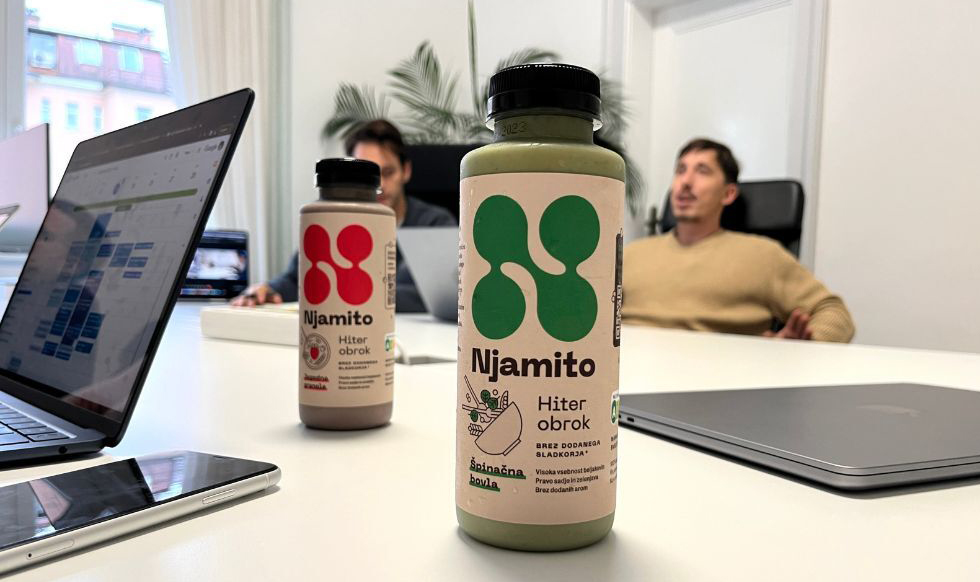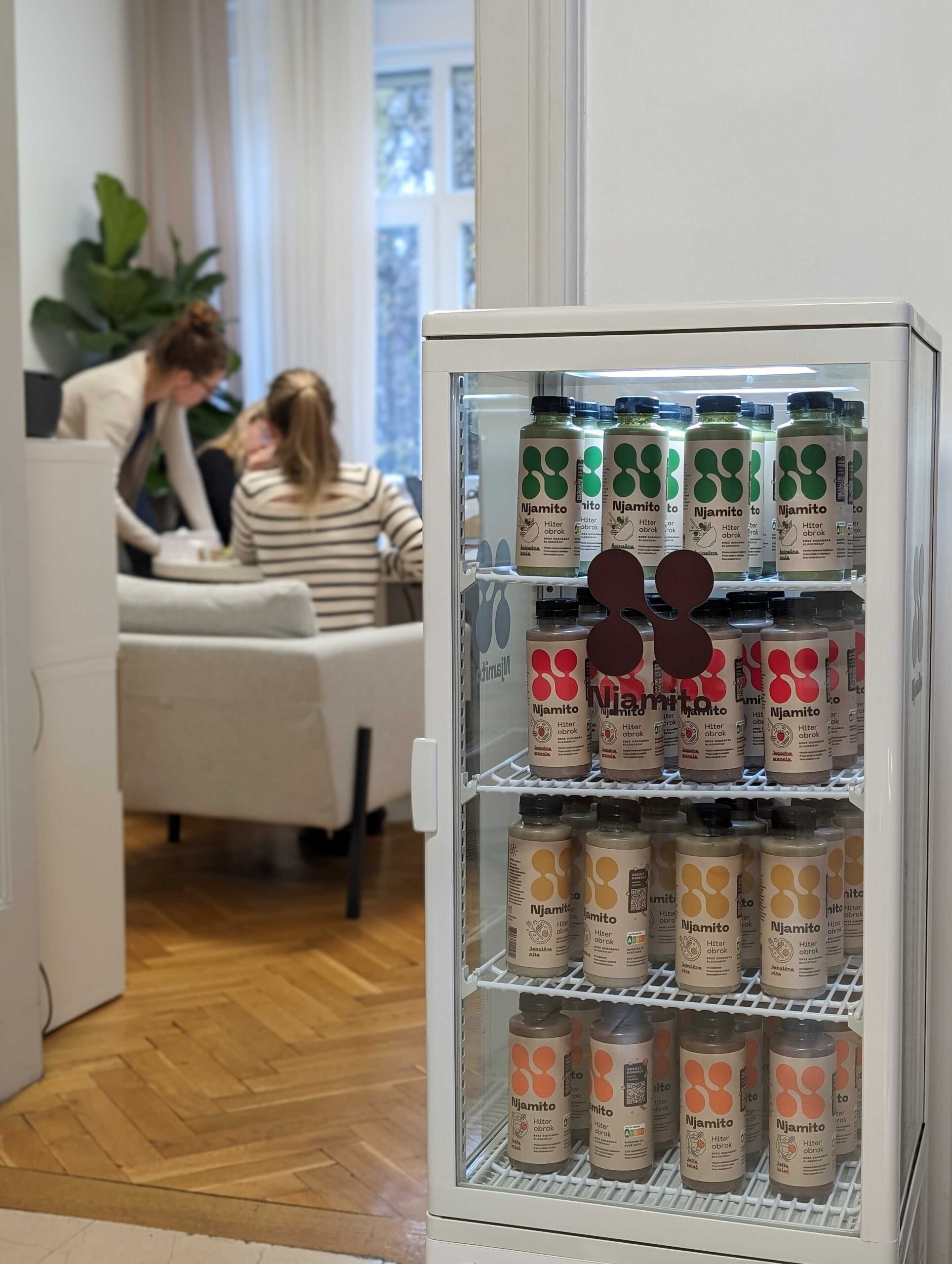How We Tackle Weeds in Organic Chickpeas
June 23, 2025We’re back in the field with our chickpea cultivation series! See how we tackle weeds after emergence using inter-row cultivation.
Read articleModern professional workplaces are hectic, and their first victim is a balanced diet. Can Njamito, our convenient and healthy meal-in-the-bottle product, help improve in-office eating habits?

We live in the relentless rhythm of modern professional life. Busy workplaces cause people to put efficiency over a balanced diet, which often falls by the wayside. The pressures of deadlines, meetings, and a never-ending to-do list have led convenience to be the number one factor in workplace eating habits. This phenomenon sees many professionals resorting to fast food, unhealthy snacks, or even skipping meals entirely. The impact of these choices on their physical and mental health is far from negligible, which at the same time highly affects work performance. Research has consistently shown that poor dietary habits (mostly or including at work) lead to decreased concentration, higher stress levels, and overall reduced productivity.
To our Food Development team it seemed that Njamito, our convenient and healthy meal-in-a-bottle product, had to be an ideal candidate to provide better food infrastructure in a workplace. This was not only due to its nutritional profile, but also what looked like seamless integration into the hectic pace of a modern office. Of course, our dedication to empirical evidence made us turn, as numerous times before, into scientists.
Over the course of a month, we transformed three companies into Njamito-full environments. From startups to departments in large corporations, Njamito bottles were made readily available in office refrigerators at all times. To track the impact, each consumption of a Njamito bottle was followed by a short questionnaire, accessible via a QR code on the bottle. This data-driven approach allowed us to gather real-time feedback and insights over a period of time.

The findings from 59 participants were not only affirming but also full of promising outcomes. Below is the list of what we found out.
On average, employees reported 15% improvement in their overall well-being after consuming Njamito. This suggests that the right balance of nutrients can profoundly influence mood and short-term health-related experience, especially in a work setting.
On average, employees experienced 18% heightened concentration and productivity following Njamito consumption. This underscores the direct correlation between balanced nutrition and cognitive performance in the workplace, suggested by past research.
Post-meal lethargy prevalence experienced with other food options generally varies between 37-46.4%, depending on the fat intake. Participants in our experiment felt drowsy after consuming Njamito only 9% of the time. This points to the benefits of a light, nutrient-rich meal for maintaining energy levels throughout the workday.
80% of the participants chose Njamito over traditional snacks and meals, including home-cooked food, fruits, nuts, and salty and sweet snacks. 10% stopped the unhealthy habit of skipping meals as well. Since Njamito has a more comprehensive nutritional profile than most other options that were replaced, employees were mostly consuming a better alternative in terms of calories and nutrients.
Njamito provided satiety for almost three hours, allowing employees to stay focused without the need for additional snacking. Its convenience was highly appreciated, with 75% of employees consuming it while continuing to work (which would otherwise cause them to skip a meal), illustrating the practicality of a meal-in-a-bottle.
Employees showed a clear preference for Njamito over standard office snacks, and the variety of flavors catered to different meal times and tastes. For example, the Spinach bowl was particularly popular for breakfast, especially on Mondays, with employees viewing it as a detox meal after the weekend.

Another outcome was the observable shift in office food culture in the participating companies. With the introduction of Njamito, we received reports of a reduction in orders for sweet and salty snacks, fruits, and nuts. Employees were not only choosing Njamito over other options but were also integrating it into their home routine, as we detected employees taking Njamitos home as well (even though we kindly asked them not to, but we guess Njamito is just that good 🙂).
This experiment was more than just a validation of Njamito’s concept; it was an insight into the potential impact such a product could have in the workplace. The transition we witnessed in these companies was a testament to the growing need for healthier convenient meal options in the professional world. By providing a nutritious, easy-to-consume alternative, Njamito can help set a new standard in workplace food consumption, proving that in the fast-paced realm of modern business, health and convenience can coexist harmoniously. This story not only shows potential for Njamito, but all similar products that will follow to provide a sustainable and healthy convenient alternative to current commonly consumed options in the office. For us, it presents the crucial role of the B2B sector in fostering healthier food infrastructures in workplaces.
We’re back in the field with our chickpea cultivation series! See how we tackle weeds after emergence using inter-row cultivation.
Read articleTwo days, three farms, one shared goal: growing hemp more sustainably. Here’s what we learned and shared during our tour of Prekmurje.
Read articleChickpeas offer great potential for organic farming. Join us as we walk you through the essential steps of chickpea cultivation, starting with seedbed preparation.
Read article